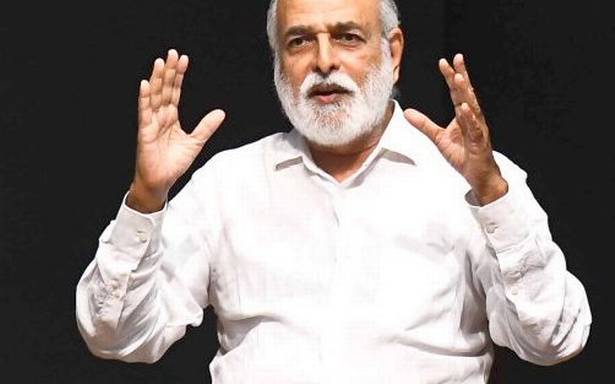There has been a dramatic jump in charging a person with the offence of sedition since 2016, notes the senior journalist
Senior journalist Sashi Kumar has moved the Supreme Court saying the sedition law is being applied by the government against journalists, activists, filmmakers and civil society in a “politicised fashion”.
Mr. Kumar, represented by advocates Kaleeswaram Raj, Nishe Rajen Shonker and Thulasi K. Raj, cited the cases of climate activist Disha Ravi, filmmaker Aisha Sultana and journalists Vinod Dua and Siddique Kappan in this regard.
“There has been a dramatic jump in charging a person with the offence of sedition since 2016. In 2019, 93 cases were on the ground of sedition as compared to the 35 cases that were filed in 2016. The same constitutes a 165% increase. Of these 93 cases, charge sheets were filed in a mere 17% of cases and even worse, the conviction rate was an abysmally low 3.3%,” the application said.
The Supreme Court has recently said it would examine the use of the sedition provision (Section 124A) of the Indian Penal Code.
Intervention in case
Mr. Kumar, who has sought permission to intervene in the case before the Supreme Court, referred to National Crime Records Bureau reports that in 2019, 21 cases were closed on account of no evidence, two were closed being false cases and six cases held to be civil disputes.
“The vague and overboard nature of the provision also has a chilling effect on the right to free speech. The provision is a classic example of a punitive law imposing serious burdens on the right to freedom of speech,” the application contended.
It said the court itself, in a 2010 reported judgment in S Khushboo v. Kaniammal judgment, observed that “the law should not be used in a manner that has chilling effects on the ‘freedom of speech and expression’”.
“Even without Section 124A, the Indian criminal law sufficiently deals with matters relating to violence, public order and threats to the security of the State,” Mr. Kumar said.
There are also other legislations in place to prevent ‘violence against the State’ like the Prevention of Insults to National Honour Act of 1971.
Source: Read Full Article

